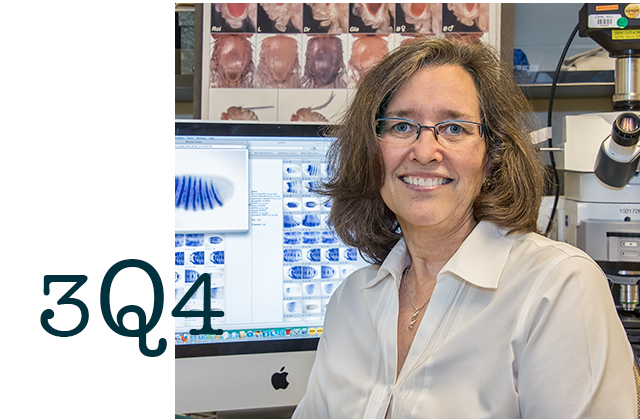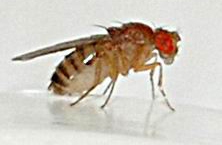 Every year, Berkeley Lab employees nominate exceptional colleagues and teams for a Director’s Awards. This year’s nomination period runs until June 30.
Every year, Berkeley Lab employees nominate exceptional colleagues and teams for a Director’s Awards. This year’s nomination period runs until June 30.
Last year the Berkeley Lab Prize – Lifetime Achievement Award went to Sue Celniker. She says that recognition and the respect it showed for her work by her peers was quite an honor.
In 1995, Sue was recruited to the Lab to work on the Drosophila genome project, a pilot for the human genome project that led to the development of the Joint Genome Institute. Drosophila shares three-quarters of its genes with humans, and so it’s no surprise that Sue’s Drosophila genome project and functional genomics studies have continued to serve as a model for other studies in other organisms.
Sue is currently Deputy of Science for the Biological Systems and Engineering Division, Co-Director of the Drosophila Genome Center, and an Adjunct Professor in Comparative Biochemistry at UC Berkeley.
Q: What’s special about working at the Lab?
A: The ability to work in large teams. In a traditional academic lab, there is a single PI who works primarily with postdocs and grad students. But at the Lab, I’ve worked with scientists, engineers, statisticians, and well-trained senior research associates to undertake large projects not capable of being tackled by university labs.
 Q: Did your research in functional genomics lead you down a path you weren’t expecting in life?
Q: Did your research in functional genomics lead you down a path you weren’t expecting in life?
A: Definitely. Because of the Lab’s expertise in microbes and the environment, I pivoted my studies to include the Drosophila microbiome and responses to xenobiotic treatment that was part of the Lab-wide initiative known as Microbes to Biome (M2B) program, and then later to some of the science planned for the new BioEPIC building. With this newly acquired expertise, we were able to serve as a Test & Evaluation team for the IARPA FELIX biosecurity program.
Q: What excited you about researching in functional genomics?
A: My interests are in control of gene expression during development. How does a single cell, the egg, develop into a complete organism? This is a challenge to study in any animal but easier in Drosophila because of its powerful genetic systems and short life cycle. A course in classical genetics and a research undergraduate internship at the City of Hope in college introduced me to this field. These experiences got me excited me about research.